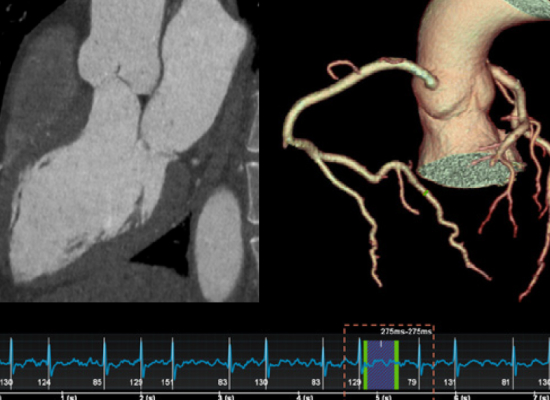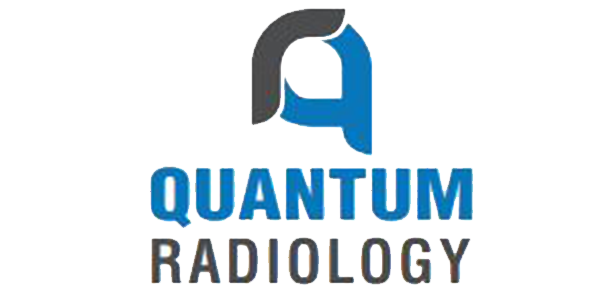
Cardiac CT Imaging

Cardiac CT Imaging
Cardiovascular diseases remain the leading cause of death globally, with about 17.9 million lives taken each year, according to the World Health Organization. With the number of cardiac CT procedures rising, there is an increasing demand for non-invasive rapid CTCAs to ensure diagnostic accuracy.
At Quantum Radiology, we are committed to investing in state-of-the-art equipment like the AI powered Revolution Vibe CT – the FIRST in the Southern Hemisphere, setting a new benchmark in cardiac imaging by providing exceptional image quality at ultra-low radiation doses, enabling more accurate diagnoses and improved outcomes for our patients, even in complex cases. Patients who have previously had difficulty accessing CTCA studies due to arrythmias, high heart rate or inability to take beta blockers can now undergo lifesaving Cardiac CT scans, minimising study preparation and maximising access to early treatment.
What is a CTCA Scan?
A CT Coronary Angiography (CTCA) is a specialised, non-invasive heart scan used to assess the coronary arteries—the vessels responsible for supplying blood to the heart muscle. Utilising advanced CT imaging technology, this scan produces high-resolution images that allow clinicians to detect any narrowing, blockages, or abnormalities that may indicate coronary artery disease (CAD) or other cardiovascular issues.
Unlike traditional angiograms, which require inserting a catheter into the heart, a CTCA is entirely non-invasive. This makes it a safer and more comfortable diagnostic option for patients seeking to evaluate their heart health without the risks associated with more invasive procedures.
Why is a CTCA Performed?
A CTCA is commonly recommended when there is clinical suspicion of coronary artery disease or when a patient presents with symptoms such as chest pain (angina) or shortness of breath. It also plays a crucial role in preventive cardiology, particularly for individuals with risk factors like:
- High blood pressure
- High cholesterol
- Smoking
- Diabetes
- A family history of heart disease
- Suspected coronary artery disease in symptomatic patients
- Atypical chest pain
- Unexplained dyspnoea
- Suspected coronary artery anomalies such as fistula
- Evaluation of coronary arteries in cardiomyopathy
- Coronary stent patency in selected cases
- Assessment of bypass grafts
- Inconclusive stress testing results
- Inability to have invasive angiography
What Can a CTCA Show?
CTCA provides precise, detailed images of the coronary arteries, enabling clinicians to identify:
- Areas of blockage or narrowing
- Calcium deposits (calcification)
- Early signs of atherosclerosis
This information supports early diagnosis and intervention, helping to reduce the risk of serious cardiac events such as heart attacks by enabling timely treatment.
How Should Patients Prepare for a CTCA?
Preparation for a CT Coronary Angiography (CTCA) is straightforward. Patients will typically be advised to:
- Avoid caffeine for 24 hours prior to the scan, as it can elevate the patient’s heart rate.
- Fast for 4–6 hours before the procedure to help maintain a steady heart rate.
- Stay well hydrated, as drinking water before the scan supports clearer imaging and assists with the administration of contrast dye.
- Pause certain medications if necessary— the referring doctor will provide the patient instructions based on their health and current treatments.
Wearing loose, comfortable clothing is recommended, and patient will be asked to remove any metal items (such as jewellery) prior to procedure as this can interfere with the scan.
The Procedure:
A member of our Quantum Radiology specialist team will arrange any required preparations, including any required dye administration, beta blockers or ECG. The patient lies comfortably on the CT scan table, which slowly moves through the scanner. The CT machine rotates around the chest, capturing a series of high-resolution images. These are reconstructed into a detailed view of the heart and coronary vessels.
The scan itself lasts approximately 10–15 minutes, however the entire appointment can take up to 30 minutes, including preparation.
The procedure is non-invasive and painless, although some patients may briefly feel a warm or flushed sensation when the contrast dye is administered. You may remain in clinic for approximately 30 mins under observation post procedure to monitor for any side effects.
Please Include all Relevant Clinical Notes on Referral such as:
- Any Allergy to IV contrast/iodine
- Patients unable to hold their breath or stay still
- Irregular heartbeats like atrial fibrillation or frequent ectopic beats
- Any medications currently taken by patient eg beta blockers?
- Patients with high BMI
- Recent kidney and thyroid function tests indications (important for diabetic patients)
- Any previous history of kidney or thyroid diseases
Refer with Confidence
Quantum Radiology is committed to delivering precision imaging with next-generation equipment. Whether your patient presents with routine symptoms or complex cardiac history, you can count on accurate, timely, and clinically actionable results.
Experience the next generation of CT imaging – Let us help you deliver faster, safer, and more accurate medical assessments for your patients.


